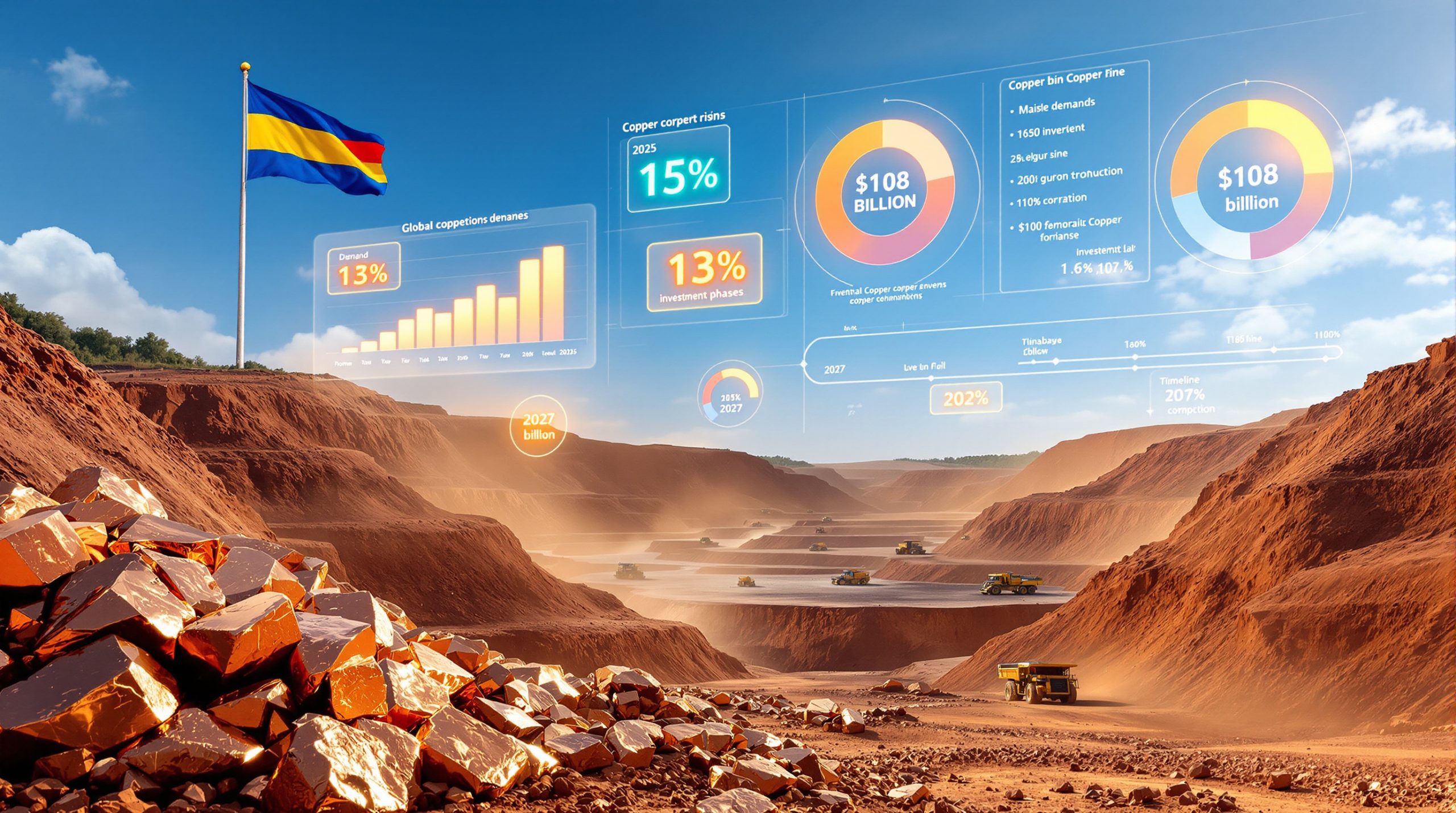What Makes Platinum Group Metals Sourcing "Responsible"?
The concept of responsible sourcing in platinum group metals encompasses far more than traditional procurement practices. Modern responsible sourcing of platinum group metals requires comprehensive integration of environmental, social, and governance criteria throughout every stage of the supply chain, from initial extraction to final delivery.
This approach fundamentally differs from conventional sourcing methods by prioritising stakeholder welfare, environmental protection, and ethical business practices alongside economic considerations. Companies implementing these standards must demonstrate measurable improvements in community relations, worker safety, and ecological stewardship.
Core Principles of Ethical PGM Procurement
Ethical procurement of platinum, palladium, rhodium, and other PGMs operates on established principles that extend beyond regulatory compliance. These frameworks require companies to actively contribute to sustainable development goals while maintaining operational efficiency and profitability.
The transformation involves systematic risk assessment, stakeholder engagement protocols, and continuous monitoring systems designed to identify and address potential ethical concerns before they escalate into larger issues. This proactive approach helps mining companies build stronger relationships with local communities and regulatory bodies.
The Five Pillars of PGM Supply Chain Ethics
Essential Components of Responsible PGM Sourcing
| Component | Requirements | Verification Method |
|---|---|---|
| Conflict-free certification | Documentation of mineral origins and chain of custody | Third-party audits and blockchain tracking |
| Human rights protection | Worker safety standards and community consent protocols | Independent monitoring and grievance mechanisms |
| Environmental impact minimisation | Emissions reduction and habitat restoration programs | Scientific assessments and satellite monitoring |
| Anti-corruption measures | Transparent financial reporting and ethical business practices | Regular compliance audits and whistleblower systems |
| Community engagement | Stakeholder consultation and benefit-sharing agreements | Social impact assessments and feedback systems |
Why Are Platinum Group Metals Critical for Global Industries?
Platinum group metals serve as essential components in technologies driving the global transition toward cleaner energy systems and reduced emissions. Their unique catalytic properties make them irreplaceable in numerous industrial applications, creating sustained demand despite price volatility.
The strategic importance of these metals extends beyond commercial applications to encompass national security considerations. Countries lacking domestic PGM production must secure reliable supply chains to support critical infrastructure development and maintain technological competitiveness.
Industrial Applications Driving Demand
Automotive manufacturers depend heavily on platinum, palladium, and rhodium for catalytic converter systems that reduce harmful emissions from internal combustion engines. These applications account for approximately 70% of global palladium demand and 40% of platinum consumption, according to industry data from the World Platinum Investment Council.
The hydrogen fuel cell sector represents an emerging growth market, with platinum serving as the primary catalyst in proton exchange membrane systems. Clean energy infrastructure projects increasingly incorporate PGMs in electrolysis equipment and fuel cell power generation systems.
Medical device manufacturing relies on platinum's biocompatibility and corrosion resistance for pacemakers, surgical instruments, and cancer treatment equipment. The electronics industry utilises these metals in semiconductors, hard disk drives, and specialised components requiring exceptional conductivity and durability.
Market Value and Supply Chain Vulnerabilities
The concentration of PGM production in politically sensitive regions creates significant supply chain risks that responsible sourcing initiatives specifically address through diversification and transparency measures.
Geographic concentration presents the most significant challenge facing PGM supply chains, with South Africa controlling approximately 70% of global platinum reserves and Russia producing roughly 40% of world palladium output. This concentration creates vulnerability to geopolitical disruptions, labour disputes, and regulatory changes.
Price volatility in PGM markets reflects these supply constraints, with palladium prices experiencing fluctuations exceeding 50% within single calendar years during recent market cycles. Such volatility impacts long-term planning for responsible sourcing investments and infrastructure development.
Which Organisations Lead Responsible PGM Sourcing Standards?
Multiple international organisations have developed frameworks specifically addressing ethical concerns in platinum group metals sourcing. These standards provide comprehensive guidelines that mining companies, refiners, and end-users can implement to ensure supply chain integrity.
The collaboration between major standard-setting bodies reflects industry recognition that coordinated approaches deliver more effective outcomes than fragmented initiatives. This cooperation enables knowledge sharing and reduces compliance burdens for companies operating across multiple jurisdictions.
The London Platinum and Palladium Market (LPPM) Framework
The LPPM operates a comprehensive due diligence system requiring members to demonstrate adherence to responsible sourcing principles throughout their operations. The framework emphasises risk-based assessments that identify potential issues before they impact supply chain integrity.
LPPM's Good Delivery Practice certification establishes quality and ethical standards for refined metals entering international markets. This responsible sourcing guidance certification process includes:
- Step-by-step verification: Documentation requirements covering mineral origins and processing methods
- Regular audit protocols: Independent assessments of member compliance with established standards
- Transparency obligations: Public reporting on sourcing practices and improvement initiatives
- Stakeholder engagement: Community consultation requirements for mining operations
- Environmental monitoring: Ongoing assessment of ecological impacts and mitigation measures
Initiative for Responsible Mining Assurance (IRMA) Standards
IRMA provides independent third-party verification of mining operations through comprehensive assessment protocols that evaluate environmental performance, social impacts, and governance structures. The organisation's standards address the complete lifecycle of mining projects from initial development through closure and post-mining land management.
Community-centred assessment criteria ensure that local stakeholder voices receive appropriate consideration in operational decisions. These requirements go beyond consultation to mandate meaningful participation in project planning and benefit-sharing arrangements.
Environmental performance benchmarking establishes measurable targets for emissions reduction, water conservation, and biodiversity protection. Mining companies must demonstrate continuous improvement in these areas to maintain certification status.
OECD Due Diligence Guidance Integration
Comparison of Major PGM Sourcing Standards
| Framework | Certification Timeline | Renewal Process | Cost Structure |
|---|---|---|---|
| LPPM Good Delivery | 6-12 months initial assessment | Annual compliance review | Membership fees plus audit costs |
| IRMA Standards | 18-24 months comprehensive evaluation | Three-year certification cycle | Independent auditor fees |
| OECD Guidance | Implementation varies by jurisdiction | Ongoing monitoring requirements | Internal compliance costs |
How Do Mining Companies Implement Responsible Sourcing Practices?
Implementation of responsible sourcing requires systematic changes across all operational areas, from community relations and environmental management to supply chain documentation and stakeholder communication. Mining companies must establish robust systems capable of demonstrating compliance with multiple standards simultaneously.
Successful implementation typically involves phased approaches that prioritise high-risk areas while building organisational capacity for comprehensive programme management. This strategy allows companies to achieve meaningful progress while managing implementation costs and operational disruptions.
On-Site Operations and Community Engagement
Community engagement protocols require mining companies to obtain free, prior, and informed consent from affected populations before commencing operations. This process involves extensive consultation, impact assessment, and negotiation of benefit-sharing agreements that provide tangible value to local communities.
Local employment and skills development programmes create pathways for community members to participate directly in mining operations while building transferable capabilities for post-mining economic activities. Furthermore, the mining sustainability transformation includes these initiatives:
- Technical training programmes: Equipment operation and maintenance skills
- Educational partnerships: Collaboration with local schools and universities
- Entrepreneurship support: Small business development and procurement opportunities
- Women's empowerment initiatives: Gender-inclusive employment and leadership development
- Youth engagement programmes: Career development pathways for young community members
Environmental monitoring systems extend beyond regulatory requirements to include real-time tracking of air quality, water resources, and ecosystem health. Advanced sensor networks and satellite imagery provide continuous data streams that enable rapid response to emerging environmental concerns.
Supply Chain Transparency and Traceability
Step-by-Step Traceability Process
- Mine-to-refinery documentation: Comprehensive records tracking mineral extraction, processing, and transportation
- Third-party verification protocols: Independent audits confirming accuracy of documentation and compliance with standards
- Digital tracking integration: Blockchain and IoT technologies providing real-time visibility into supply chain movements
- End-user certification requirements: Documentation delivered to final customers demonstrating responsible sourcing compliance
- Periodic compliance reporting: Regular updates to stakeholders on programme performance and improvement initiatives
Digital tracking systems increasingly incorporate blockchain technology to create immutable records of mineral origins and processing history. These systems enable rapid identification of specific ore batches and facilitate quick responses to quality concerns or compliance issues.
Financial and Reputational Risk Management
Insurance requirements for environmental liabilities ensure that mining companies maintain adequate financial resources to address potential ecological damages throughout project lifecycles. These policies often extend beyond operational periods to cover post-closure monitoring and remediation obligations.
ESG reporting integration with financial disclosures provides investors and stakeholders with comprehensive visibility into sustainability performance and associated risks. Companies increasingly link executive compensation to ESG targets, demonstrating management commitment to responsible sourcing principles.
What Are the Environmental Challenges in PGM Mining?
Platinum group metals extraction presents unique environmental challenges due to the deep underground mining methods required to access ore deposits and the energy-intensive processing techniques needed to separate valuable metals from host rock. These factors create significant carbon footprints and potential ecosystem impacts.
The geographic concentration of PGM deposits in environmentally sensitive regions compounds these challenges, requiring mining companies to operate within strict ecological constraints while maintaining economic viability. Responsible sourcing standards specifically address these concerns through mandatory environmental management protocols.
Energy Intensity and Carbon Footprint Reduction
Environmental Impact Metrics for Major PGM Operations
| Impact Category | Industry Average | Best Practice Target | Measurement Method |
|---|---|---|---|
| GHG emissions (CO2e/oz Pt) | 15-25 tonnes | <12 tonnes | Lifecycle assessment |
| Water consumption (L/oz Pt) | 180,000-220,000 | <150,000 | Direct measurement |
| Land disturbance (ha/million oz) | 800-1,200 | <600 | Satellite monitoring |
| Waste generation (tonnes/oz Pt) | 150-200 | <120 | Operational tracking |
Greenhouse gas emissions from PGM mining operations primarily result from electricity consumption for underground ventilation, ore processing, and metal refining. Companies implementing responsible sourcing practices increasingly invest in renewable energy systems and energy efficiency improvements to reduce their carbon intensity.
Moreover, decarbonisation economic benefits are driving significant changes in operational approaches. Water consumption rates reflect the substantial quantities required for ore processing, dust suppression, and equipment cooling.
Biodiversity Protection and Ecosystem Management
Critical habitat assessments identify sensitive ecological areas requiring special protection measures during mining operations. These evaluations consider endemic species populations, migration corridors, and ecosystem connectivity factors that might be disrupted by mining activities.
Species monitoring programmes track populations of indicator organisms that reflect overall ecosystem health. These initiatives often involve partnerships with conservation organisations and research institutions that provide specialised expertise and independent verification of environmental outcomes.
Restoration ecology programmes focus on post-mining land rehabilitation that creates long-term ecological value for local communities and wildlife populations. Advanced techniques include soil reconstruction, native plant propagation, and habitat connectivity restoration through mine reclamation innovations.
Water Resource Management and Pollution Prevention
Acid mine drainage prevention requires sophisticated geochemical management throughout mining operations and into post-closure periods. Companies employ advanced modelling techniques to predict potential acid generation and implement prevention strategies before problems develop.
Groundwater protection systems include monitoring networks that track water quality indicators and early warning systems that trigger immediate response protocols when contamination risks emerge. These systems often extend beyond mine boundaries to monitor regional aquifer systems.
How Does Responsible Sourcing Impact PGM Market Pricing?
Responsible sourcing initiatives create market differentiation that enables premium pricing for certified platinum group metals. This price differential reflects growing demand from manufacturers and investors who prioritise supply chain integrity and sustainability performance in their procurement decisions.
Market research indicates that premium pricing for responsibly sourced PGMs ranges from 2-8% above conventional market prices, depending on certification standards and end-user requirements. These premiums provide economic incentives for mining companies to invest in responsible sourcing infrastructure and certification processes.
Premium Pricing for Certified Metals
Consumer willingness to pay for ethical sourcing guarantees has strengthened significantly as environmental and social concerns gain prominence in corporate decision-making processes. Automotive manufacturers, electronics companies, and jewellery producers increasingly specify responsibly sourced materials in their procurement policies.
Corporate procurement policies driving demand for certified materials reflect stakeholder pressure and regulatory requirements that emphasise supply chain transparency. Companies implementing these policies often accept higher material costs to achieve sustainability objectives and reduce reputational risks.
Market differentiation between standard and responsibly sourced PGMs continues expanding as certification programmes mature and adoption rates increase among major mining companies. This trend suggests that responsible sourcing of platinum group metals may become standard practice rather than premium positioning.
Investment Flows and Capital Allocation
ESG-focused investment funds increasingly require portfolio companies to demonstrate responsible sourcing compliance before receiving capital allocation. These requirements create powerful incentives for mining companies to prioritise sustainability investments and certification achievements.
Access to international financing and development bank support often depends on demonstrated adherence to responsible sourcing standards. Major financial institutions have implemented policies that restrict lending to projects lacking appropriate environmental and social safeguards.
Insurance cost variations reflect risk assessments that consider responsible sourcing compliance as a factor in premium calculations. Companies with strong ESG performance records typically receive more favourable terms and broader coverage options.
What Role Do Technology Solutions Play in PGM Traceability?
Advanced technology solutions have become essential tools for implementing and verifying responsible sourcing practices in platinum group metals supply chains. These systems provide real-time visibility, automate compliance reporting, and enable rapid response to emerging issues throughout global supply networks.
The integration of multiple technology platforms creates comprehensive monitoring capabilities that exceed traditional audit-based verification methods. Companies utilising these systems can demonstrate continuous compliance rather than periodic snapshots of their operations.
Digital Tracking and Blockchain Applications
Real-time supply chain visibility through digital tracking systems enables stakeholders to monitor mineral movements from extraction through final delivery. These platforms provide authenticated documentation that creates auditable records of responsible sourcing compliance throughout the value chain.
Smart contract automation reduces administrative burdens while ensuring consistent application of compliance verification protocols. These systems automatically trigger verification processes, flag potential issues, and generate compliance reports without manual intervention.
Data security and privacy protection measures address concerns about operating in politically sensitive mining regions where transparency requirements must balance with operational security considerations. Advanced encryption and access control systems protect sensitive information while maintaining audit capabilities.
Satellite Monitoring and Remote Sensing
Satellite monitoring technology enables independent verification of mining operations and environmental performance, providing stakeholders with objective data about company commitments to responsible sourcing practices.
Environmental impact assessment through aerial surveillance provides continuous monitoring capabilities that complement ground-based measurement systems. High-resolution imagery enables detection of unauthorised activities, habitat disturbance, and environmental compliance issues.
Illegal mining detection systems utilise machine learning algorithms to identify unauthorised extraction activities that could compromise supply chain integrity. These systems automatically alert authorities and certification bodies about potential violations.
Community displacement monitoring tracks changes in settlement patterns and land use that might indicate social impacts requiring intervention or mitigation measures. This information supports ongoing stakeholder engagement and grievance resolution processes through AI in mining operations.
Which Countries Lead in Responsible PGM Production?
Geographic leadership in responsible platinum group metals production reflects both resource endowment and regulatory framework development. Countries with significant PGM deposits are implementing comprehensive sustainability initiatives to maintain competitive advantages in evolving global markets.
The transformation toward responsible production practices requires substantial investments in infrastructure, training, and monitoring systems. Leading jurisdictions demonstrate that these investments generate positive returns through premium pricing, improved access to capital, and enhanced operational stability.
South Africa's Transformation Initiatives
South Africa's Black Economic Empowerment policies integrate with responsible sourcing requirements to create comprehensive transformation frameworks that address historical inequities while improving sustainability performance. These initiatives require mining companies to demonstrate meaningful participation by previously disadvantaged communities.
Community development fund allocation and management systems ensure that mining operations contribute directly to local economic development through infrastructure projects, education programmes, and business development initiatives. These funds typically represent 3-5% of annual mining revenues dedicated to community benefit programmes.
Labour relations improvements focus on worker safety enhancements, skills development opportunities, and participatory decision-making processes that give employees greater voice in workplace conditions and operational planning.
Emerging Producers and Best Practice Development
Global PGM Production and Responsibility Rankings
| Country | Production Volume (% global) | ESG Performance Score | Certification Adoption Rate |
|---|---|---|---|
| South Africa | 70% | 6.8/10 | 45% |
| Russia | 25% | 4.2/10 | 15% |
| Zimbabwe | 3% | 5.1/10 | 25% |
| Canada | 1.5% | 8.5/10 | 75% |
| United States | 0.5% | 7.9/10 | 80% |
Regulatory framework strength varies significantly across PGM-producing jurisdictions, with developed mining economies typically maintaining more comprehensive oversight systems and enforcement mechanisms. These frameworks create competitive advantages for companies operating in well-regulated environments.
International certification adoption rates reflect both regulatory requirements and voluntary commitments by mining companies to demonstrate responsible sourcing compliance. Higher adoption rates correlate with access to premium markets and favourable financing terms, as outlined in recent responsible sourcing collaboration initiatives.
How Can Investors Evaluate PGM Sourcing Responsibility?
Investment analysis of responsible sourcing practices requires comprehensive evaluation frameworks that consider both current performance and future trajectory of mining companies. These assessments must balance traditional financial metrics with sustainability indicators that reflect long-term value creation potential.
The complexity of responsible sourcing evaluation has led to development of specialised assessment tools and rating systems that provide investors with standardised comparison metrics across different mining companies and jurisdictions.
Due Diligence Frameworks for Financial Analysis
Investor Assessment Checklist
- Third-party certification verification: Review current certifications, audit history, and compliance track record with major standards
- Community relations assessment: Evaluate stakeholder engagement quality, grievance mechanisms, and social licence maintenance
- Environmental compliance analysis: Examine regulatory compliance history, environmental liabilities, and remediation commitments
- Management commitment evaluation: Assess board-level ESG oversight, executive compensation linkage, and resource allocation patterns
- Supply chain transparency review: Analyse traceability systems, documentation quality, and end-user verification capabilities
Community relations track records provide insight into companies' ability to maintain social licence to operate, which directly impacts operational continuity and expansion opportunities. Investors increasingly recognise that poor community relations create material risks to project viability and profitability.
Environmental compliance history indicates management commitment to responsible practices and potential future liabilities that could affect financial performance. Companies with strong compliance records typically demonstrate better risk management capabilities across all operational areas.
ESG Integration and Performance Metrics
Materiality assessment for PGM-focused investments identifies specific ESG factors that create the greatest impact on financial performance and operational risks. These assessments help investors prioritise evaluation criteria and resource allocation for due diligence activities.
Benchmark comparison tools enable investors to evaluate mining company performance relative to industry peers and identify leaders in specific aspects of responsible sourcing implementation. These comparisons reveal competitive advantages and potential risks in investment portfolios.
Long-term value creation through responsible sourcing premiums provides additional return potential for investors who correctly identify companies positioned to benefit from market differentiation trends. Early adoption of responsible sourcing of platinum group metals creates sustainable competitive advantages.
What Are the Future Trends in Responsible PGM Sourcing?
The evolution of responsible sourcing standards continues accelerating as regulatory requirements expand and stakeholder expectations increase. Future developments will likely emphasise automation, integration with circular economy principles, and enhanced verification technologies that provide greater transparency and accountability.
Emerging trends suggest that responsible sourcing will transition from competitive differentiator to baseline requirement for market participation. This evolution will create new challenges and opportunities for mining companies, investors, and end-users throughout PGM value chains.
Regulatory Evolution and Compliance Requirements
European Union supply chain due diligence legislation impacts extend beyond European companies to affect global suppliers seeking access to EU markets. These regulations require comprehensive documentation of social and environmental impacts throughout supply chains, creating new compliance obligations for PGM producers worldwide.
United States conflict minerals reporting requirements may expand to include additional commodity categories, potentially encompassing platinum group metals under future regulatory frameworks. Such expansion would create mandatory disclosure requirements for companies utilising PGMs in manufactured products.
International cooperation frameworks continue developing through multilateral organisations and industry associations that promote harmonisation of responsible sourcing standards. These efforts reduce compliance complexity while maintaining effectiveness of ethical safeguards.
Technology Integration and Automation
Artificial intelligence applications in supply chain monitoring enable predictive analysis of risk factors and automated identification of potential compliance issues before they create operational problems. Machine learning systems continuously improve their detection capabilities through experience with diverse operational scenarios.
Internet of Things sensors provide real-time environmental and operational data that supports continuous monitoring requirements under responsible sourcing standards. These systems reduce monitoring costs while improving data quality and response capabilities through data-driven mining operations.
Predictive analytics for risk assessment enable proactive management of social, environmental, and governance challenges that could impact supply chain integrity. Companies utilising these tools demonstrate superior risk management capabilities that attract investment and customer loyalty.
Circular Economy and Recycling Integration
PGM Recycling vs. Primary Production Responsibility Metrics
| Metric Category | Primary Mining | Recycling Operations | Performance Gap |
|---|---|---|---|
| Carbon intensity (kg CO2e/oz) | 15,000-25,000 | 2,000-5,000 | 70-80% reduction |
| Water consumption (L/oz) | 180,000 | 15,000-25,000 | 85-90% reduction |
| Community impact | High | Low | Significant difference |
| Supply security | Geopolitical risk | Domestic availability | Enhanced security |
Urban mining and electronic waste processing standards are developing to address responsible sourcing requirements for recycled platinum group metals. These standards ensure that recycling operations maintain ethical practices while providing sustainable alternatives to primary mining.
Closed-loop supply chain development focuses on creating circular systems that minimise waste and maximise material recovery rates. Companies implementing these systems achieve competitive advantages through reduced raw material costs and enhanced supply security.
Secondary market certification programmes provide quality assurance for recycled PGMs while maintaining responsible sourcing documentation throughout processing cycles. These programmes enable recycled materials to command premium pricing similar to responsibly sourced primary metals.
Building Sustainable PGM Supply Chains for the Future
The transformation toward sustainable platinum group metals supply chains represents both significant challenge and substantial opportunity for mining companies, investors, and end-users. Success requires coordinated efforts across multiple stakeholder groups and sustained commitment to continuous improvement principles.
Industry collaboration enables sharing of best practices, development costs, and technical expertise that accelerates adoption of responsible sourcing practices across global supply chains. These partnerships create collective value that exceeds individual company capabilities.
Industry Collaboration and Shared Value Creation
Multi-stakeholder partnerships bring together mining companies, technology providers, civil society organisations, and government agencies to develop comprehensive solutions for responsible sourcing challenges. These collaborations leverage diverse expertise and resources to achieve outcomes that individual organisations cannot accomplish independently.
Knowledge sharing and best practice dissemination mechanisms ensure that innovations in responsible sourcing reach companies throughout global supply chains. Industry associations, research organisations, and certification bodies play crucial roles in facilitating these knowledge transfers.
Collective impact measurement frameworks enable stakeholders to assess aggregate progress toward sustainability objectives while identifying areas requiring additional attention and resources. These systems support evidence-based decision-making and resource allocation optimisation.
Long-term Strategic Implications
Competitive advantage through early responsible sourcing adoption creates sustainable differentiation that becomes increasingly valuable as market standards evolve. Companies establishing leadership positions in responsible sourcing typically maintain these advantages through continuous innovation and stakeholder relationship development.
Risk mitigation and operational resilience building through responsible sourcing practices help companies navigate political, social, and environmental challenges that could disrupt traditional operations. These capabilities become essential for maintaining consistent supply chain performance in volatile operating environments.
Contribution to global sustainability and development goals through responsible PGM sourcing supports broader societal objectives while creating business value. Companies demonstrating authentic commitment to these goals build stronger stakeholder relationships and access new market opportunities.
The responsible sourcing of platinum group metals will continue evolving as technology advances, regulatory frameworks develop, and stakeholder expectations increase. Companies that proactively embrace these changes while maintaining focus on operational excellence will achieve sustainable competitive advantages in increasingly complex global markets.
Looking to Gain an Edge in the PGM Market?
Discovery Alert's proprietary Discovery IQ model delivers real-time notifications on significant platinum group metals discoveries and mining developments across the ASX, transforming complex mineral data into actionable investment insights. With responsible sourcing increasingly driving premium pricing in PGM markets, subscribers can identify emerging opportunities ahead of broader market recognition and position themselves to capitalise on the next major discovery.




